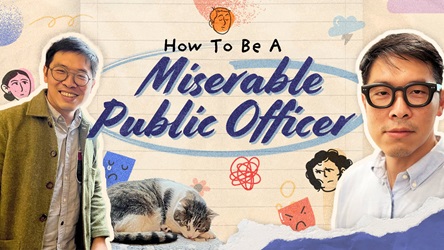Ang Bee Lian: How To Stay True To Your Work’s Purpose

ANG BEE LIAN
- Senior Director / Professional and Corporate Development Group, Ministry of Social and Family Development (May 2017–present)
- Director-General of Social Welfare, Ministry of Social and Family Development (Nov 2013–present)
- Chief Executive Officer, National Council of Social Service (Jun 2007– Nov 2013)
Dear Young Officers,
I started work in the Public Service as a bright-eyed Child Protection Officer, eager to apply what I learnt from my social work training and ready to make a difference in the lives of the vulnerable. Since then, I have experienced a variety of public sector postings – from policy-making and service development to training and staff development.
While each experience brought about different learning points, the same thing kept me going: a commitment to helping others. In this letter, I would like to share some of my reflections and observations from my journey in public service that I hope will serve as learning points for your own journey.
Knowing your purpose
As a young officer overloaded with administrative work, there were times when I wondered about the purpose of my work. For me, seeing the big picture helped. Take the case of data entry. If you had set out wanting to make a difference in people’s lives, you might wonder: “What am I doing this for?” It is only upon reflection that you would appreciate the value of data collection and see how it is necessary to initiate system changes and enhance service delivery for the people you serve.
Thus, being clear about the purpose of what you do is incredibly important. Many of you would have entered the Public Service with a particular passion, conviction or mission. It may be the desire to make a difference to the lives of the vulnerable, keep our country safe or educate the next generation. Whatever it is, it pushed you to join the Public Service and that is what will keep you going when the work gets tough.
Sometimes, after working for many years at our jobs, we may forget why we do what we do. And I have seen many people burnt out because they have lost their sense of purpose.
It is hard to tell if there are more burnouts today. But with the advent of social media, our operating environment has become more dynamic and complex. This, together with a more compressed time of information flow, can increase stress and result in burnout if we are not grounded by a sense of purpose in our work.
To stay true to your purpose, you need to constantly review how your personal purpose is fitting into the purpose of your unit, the bigger purpose of your department, agency, and ministry. A crucial question to keep asking yourself is “How is the work I am doing in line with the overall mission or vision of the agency?"
Keep in mind how the work you do each week supports the directional strategy of your organisation. This will help you see how you are contributing to the organisation as a whole and imbue a sense of meaning and fulfilment into your daily work.

If you find that it is impossible to align your purpose with the organisation’s mission or derive meaning from your work, you might need to seek a posting to another area of work. Mentoring or coaching support may be helpful when faced with such a situation. You can initiate and seek out such support instead of waiting to be assigned a mentor or coach via formal channels.
Developing people
Through my years in the Public Service, I have always practised continuous learning and development – both for myself and for others. The world never stagnates so neither should we.
In developing yourself, besides learning through reading, receiving mentoring from others and being coached, also seek out opportunities to stretch yourself beyond your comfort zone. To experience real growth, you need to push your boundaries.
In mentoring others, I find that it works best when I maintain a fairly long-term, less structured relationship with my mentees and connect with them in multiple ways on top of one-to-one sessions. Ensure that messages are timely to support their learning and help to open doors for their development.
What it means to lead
Leaders are not made by titles but by the ability to recognise and help others realise their potential. Remember that you can be a leader at various levels of your organisational structure.
Leaders make time to coach and develop others. They are interested in helping others grow by getting to know them personally and tailoring the learning to each individual. Not all the teaching and coaching needs to be done by you, but a good leader knows how to enable the learning. Distinguish between serving and over-serving others. By providing just the right amount of support and enabling appropriate self-help, people can get help more quickly.
I hope you too would have an enriching journey as public officers. May you stay guided by a sense of purpose and a heart of service in all your decisions and actions; and continually strive to develop yourself and others along the way.
- POSTED ON
Oct 1, 2019
- TEXT BY
Ang Bee Lian









